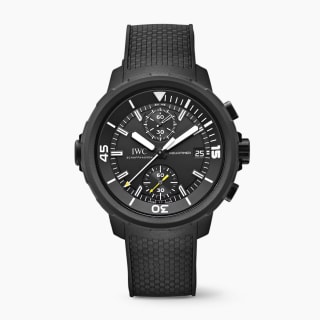IWC Schaffhausen
Originally appeared on Forbes.com on October 1st 2019
What is the one most pivotal point of your career that you celebrate as your greatest moment of success? IWC Schaffhausen will explore “the moment” with Forbes’ 30 Under 30 list makers to understand the story behind their biggest milestones.
Forbes selects 600 inspiring and aspiring young movers and makers out to change the world for its 30 Under 30 list, from 20 different industries. 30 trailblazers under the age of 30 are chosen for each industry, chronicling the brashest entrepreneurs across the United States and Canada. Take a look at the stories of Brandon Bryant, Jon Yao and Blake Tomnitz.
Chef Jon Yao Goes From Lunchboxes to a Michelin Star
Before opening Kato, the trendy Taiwanese restaurant celebrated by food critics and LA hipsters alike, Jon Yao almost quit the kitchen for law school.
“Honestly, it was just to appease my parents,” the 27-year-old Walnut, California, native, whose parents are of Chinese descent and were born in Taiwan, says of his brief fling with the law. “I figured I’d go to law school and then figure it out from there. That’s like the Asian career path: doctor, lawyer, accountant.” Ironically, it was his parents who asked their son to help them with their big idea: a lunchbox service for university students in nearby Los Angeles.
Within three years, Yao, who was named to Forbes’ 30 Under 30 list last year, helped them launch the business, quickly transformed it into a chic restaurant and earned the greatest accolade in modern cooking: a Michelin star. The way he tells it, he failed very far upward.
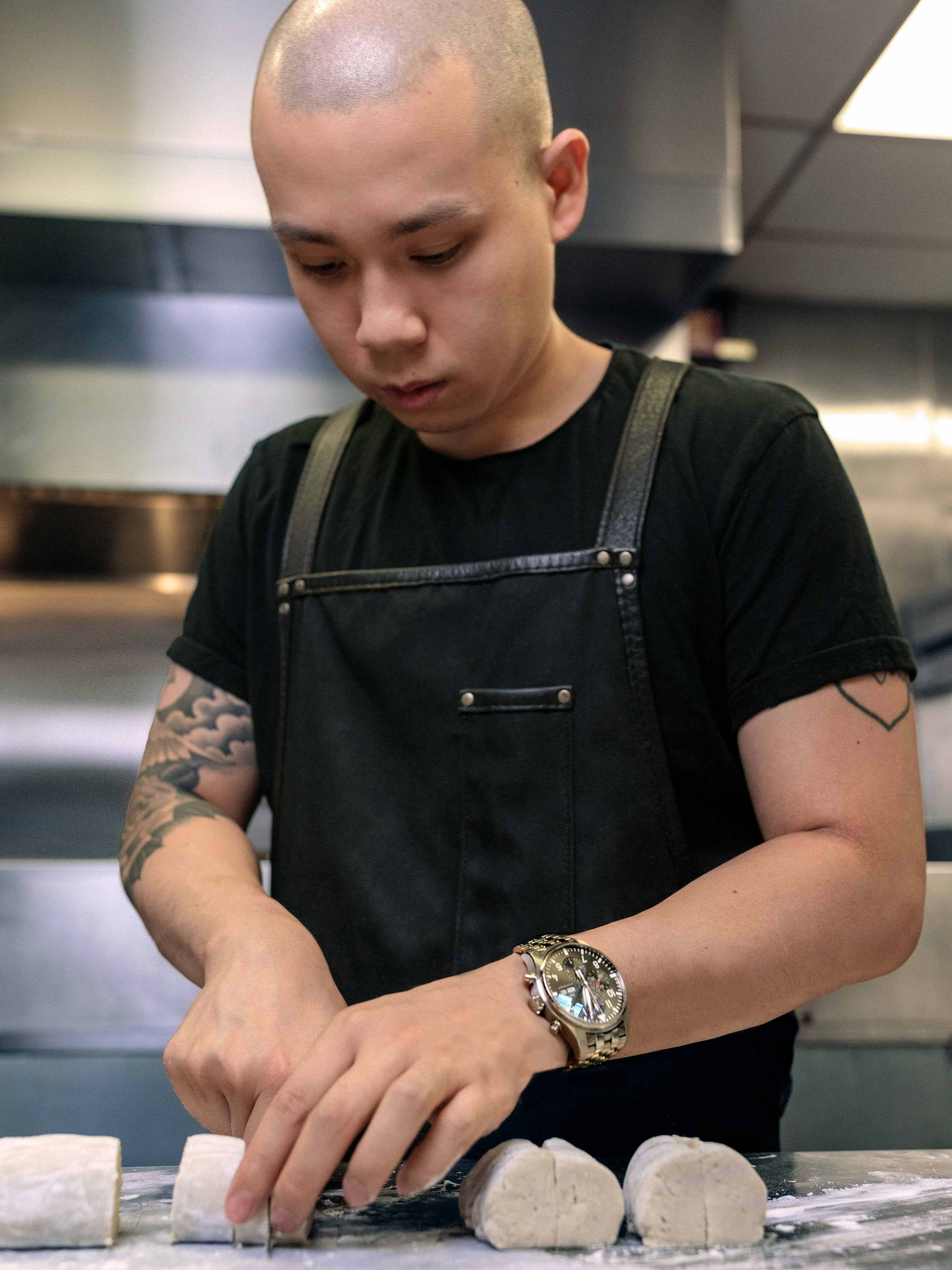
Photo credit: Forbes/Chad McClymonds
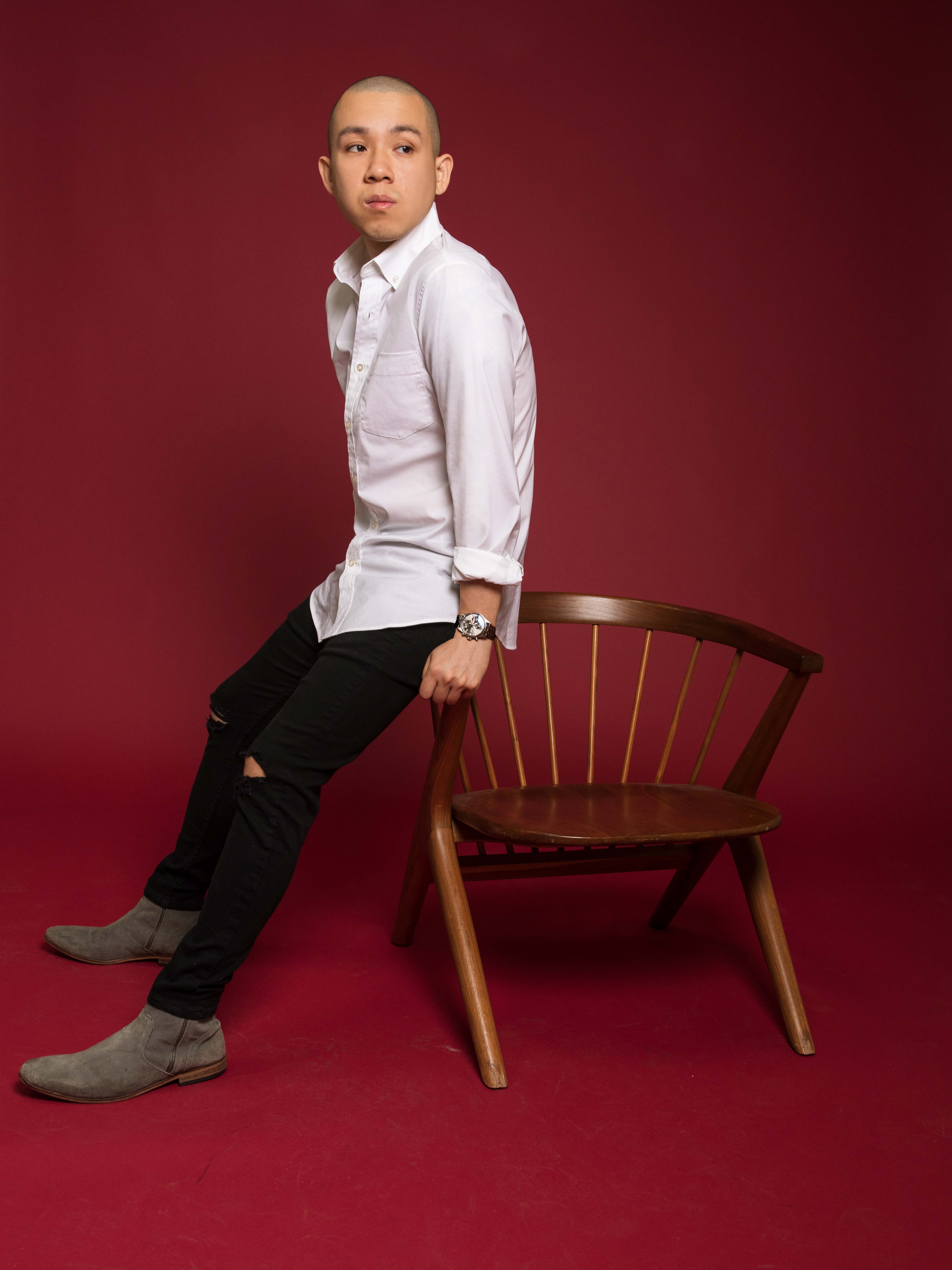
Photo credit: Forbes/Chad McClymonds
The Moment of Inspiration
Yao’s parents had spotted what they believed to be a need in the Los Angeles community: grab-and-go meals for college students. So Yao — who had run out of money interning for chefs in San Francisco after college, and still wasn’t keen on a future in law — came home to help his parents while figuring out his next move.
“They thought it was a good business opportunity. My mom always wanted to open a casual cafe,” Yao says. “They thought it would be easy, like ‘Oh, we’re just selling Chinese-Taiwanese lunchboxes to students!’” Of course, it was more complicated: Zoning laws required they operate out of a food facility, and the small, triangular space they found in a West LA strip mall needed a lot of renovations.
Pretty quickly, it seemed like the concept wasn’t working. The packaging alone was taking up more time, and space, than the cooking itself, which is what drew them to this idea, Yao recalls. “We were playing Jenga every day with supplies.” It took all of two days before their outside business partners sat the family down to face the facts.
What was working was Yao’s latest hobby: hosting friends for elaborate dinners at his house during his free time. The meals impressed his parents’ partners. “They were like, ‘If it’s so hard to organize lunchboxes, why don’t you do what you were doing at home with your friends? The five-course dinners?’” Yao says. “So that’s how we started doing them.”
Almost immediately, they pivoted to serving those finer meals in the small dining room area of their minimalist strip mall space. “It was simple, a prix fixe menu. You come in and have something easy on the weekday,” he says. Now, Kato serves an upscale, daily changing, 10-course tasting menu for $118.
The storefront area in that cheap facility they rented became the sleek, pared-down 27-seat dining room, and Yao’s role changed from “son helping out” to full-time head chef. Law school was finally, officially, off the table.
The Moment of Challenge
Yao opened the restaurant doors with no publicity plan, no executive experience, and almost no working capital. “If we hadn’t had business the first month, I wouldn’t have been able to pay my staff,” he says.
But the greatest challenge was his own search for identity. Once Kato was no longer the quick lunch spot it started as, Yao’s parents were eager to step back, and Yao was more than happy to take the reins, having done so unofficially already. But the restaurant’s direction wasn’t fully baked — and it didn’t feel personal to him.
“In the beginning, we had Thai or Vietnamese flavors in there. It wasn’t driven by my cultural identity,’” he recalls. In the hopes of bringing in money, Yao served pan-Asian dishes “that I thought resonated with what Angelenos liked to eat,” he says. “It’d be like, ‘Oh yeah, we like this Asian dish. Let’s do that.’”
He even described Kato as “Japanese and Taiwanese” on local review sites; the name Kato (which he heard in a movie once and had always planned to name his dog, if he got one) also sounds Japanese, he points out.
“We were just grasping for stuff at the beginning,” Yao says. “There wasn’t a voice behind the food.” It was that complete sense of resignation that pushed him to pivot one last time.
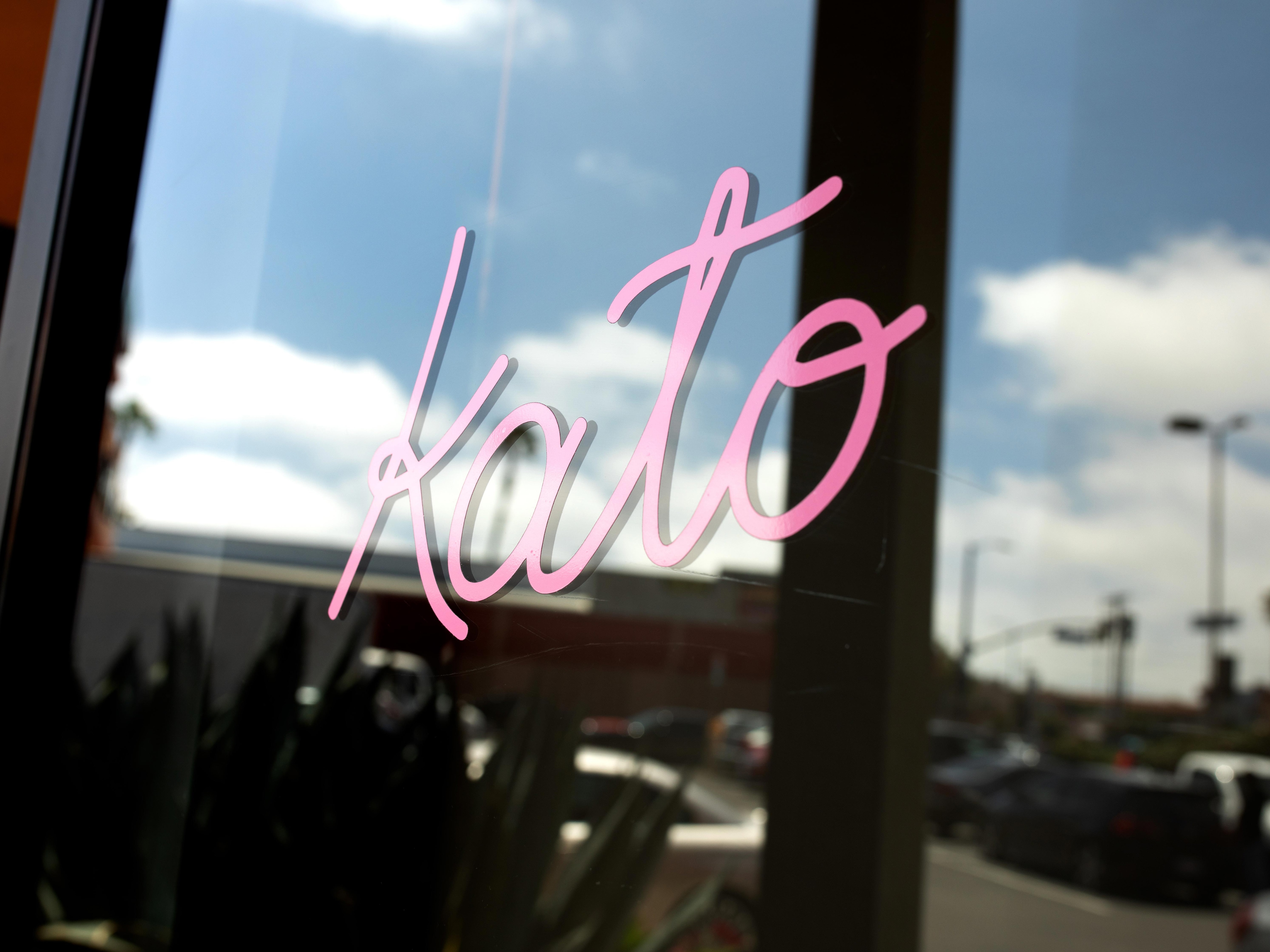
Photo credit: Forbes/Chad McClymonds
My ultimate goal was to be in the Michelin system
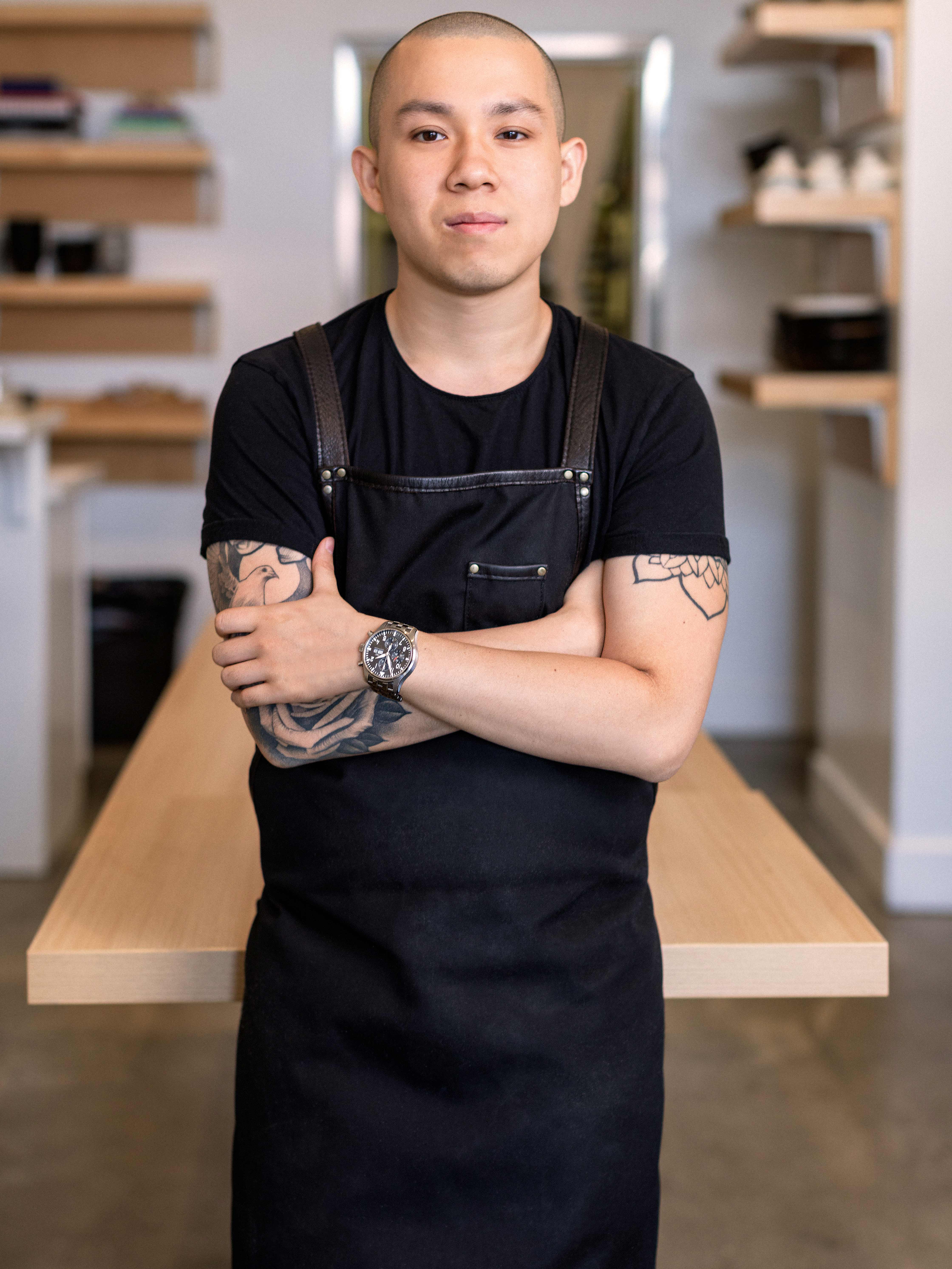
Photo credit: Forbes/Chad McClymonds
The Moment of Success
At first, Yao couldn’t help but see Kato as an evolution of someone else’s vision — a stopgap before he opened a place that was truly his. But in some ways, that freed him to take risks.
“I was essentially telling myself, ‘Okay, I need to prepare for the next restaurant. I’ll treat this like an incubator,’” he says, of deciding to curate a true Taiwanese menu influenced by the flavors of his childhood. “We had nothing to lose at this point; we’re training for the next step. I might as well do food I believe in.” He started putting more Taiwanese items on the menu, like steamed fish. “I watched my mom steam fish, and it’s a dish that most Chinese households do,” he says. “It represents Chinese food really well, the provenance of the ingredients, the technique.”
While he was busy working on this experiment, in March 2019, he got a call from Michelin letting him know Kato was being inspected, the review process for restaurants short-listed for its award.
“I was like, ‘Okay, we have to put up stuff that’s really true to us, that we feel is perfect,’” he says. “So we put on a very, very, very Taiwanese menu, and I just said, if we don’t win this way, so be it.” He’d later learn that it didn’t matter — the inspectors had already come before that call — and in June, the young chef received his first star.
“My ultimate goal was to be in the Michelin system,” he says, and since Kato’s induction, he’s noticed other finer Taiwanese spots opening up in Southern California. “It’s slowly starting to sink in. When I was younger I didn’t have a Taiwanese fine dining restaurant. Even now, a lot of Taiwanese chefs say, ‘Yeah, you guys are the guiding star. We all look to you to see what you’re going to do next.’”
It turned out Yao had already had all the incubation he needed. “I was always really insecure,” he says of his experience level. “I thought I had to put in my 10, 15 years, pay my dues, then open our restaurant. Athletes talk about 10,000 hours; I think I’ve put more than 10,000 hours in. I haven’t peeled potatoes in a [restaurant] kitchen,” but he spent his childhood as sous chef in his parents’ kitchen and then jumped into running his own.
“Maybe I’ve celebrated my learning by getting straight to the point,” says Yao, adding that Kato has “given me a voice and the confidence to do something on my own.”
Next up is the real deal: the restaurant of his dreams. In June, Yao announced plans for his second place. “The next restaurant is what I imagined I would be doing in my 30s: a fine dining restaurant shooting for three stars.” The name of the elegant new spot? Yao. It’s all him.
Created by Forbes, in partnership with IWC




